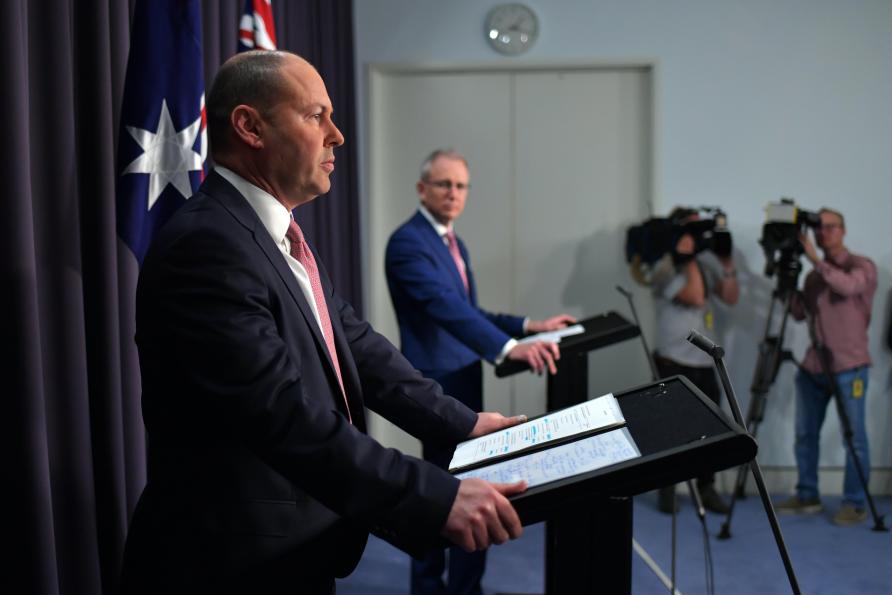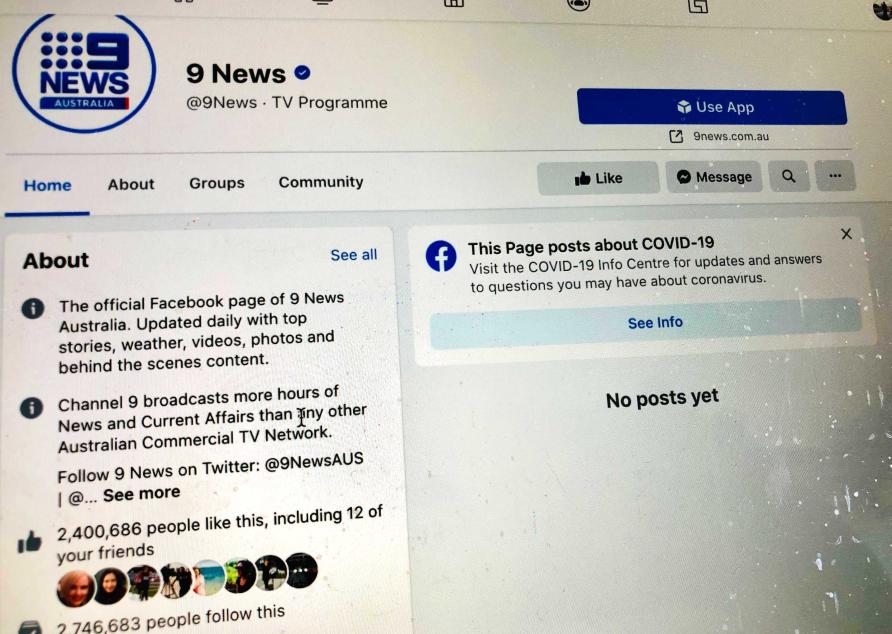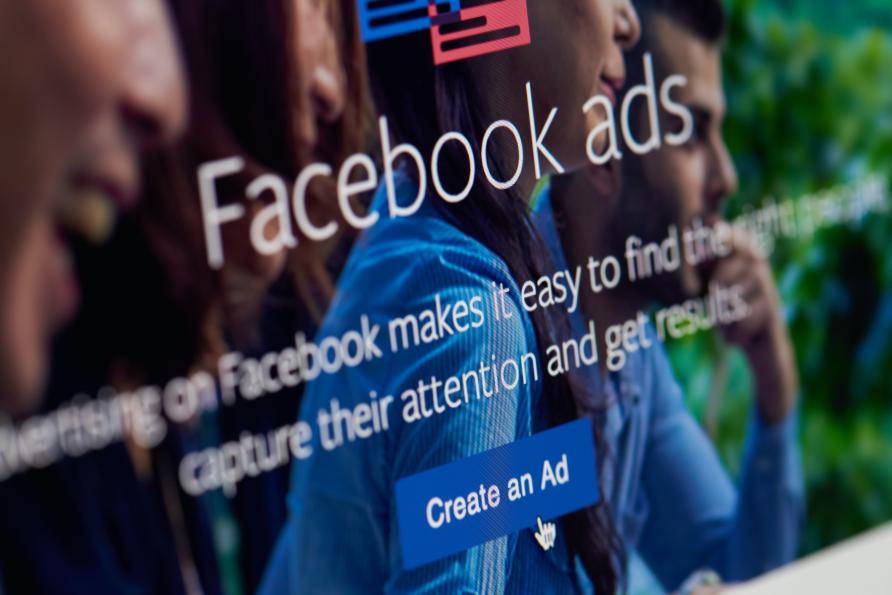Australia Vs Facebook: Regulating The Market Of Attention

Facebook has blocked the sharing of all news content in Australia, not far behind Google’s threat of exit just last month. But what’s prompting these nuclear options?
By Mariam Nadeem, Gabby Bush, Dr Dana McKay and Professor Jeannie Marie Paterson, University of Melbourne

Treasurer Josh Frydenberg says Facebook’s news ban has shown the immense power of the “digital giants”. Picture: Getty Images
On the surface, it appears to be all about news content. But make no mistake, underlying these disputes is a battle about advertising revenue, the collection and use of consumer data and more broadly the ‘attention economy’ on which these platforms’ business model is based.
Last year, a Digital Platforms Inquiry conducted by the Australian Competition and Consumer Commission (ACCC) signalled the beginnings of a regulatory implosion on tech giants and their immense market power.
Balking at proposed legislation that would force Google and Facebook to remit part of their advertising revenue to news publishers, the companies have since scrambled to oppose the bill.
Tempers cooled as Google met with Australian officials and began to strike deals with major media players. But Facebook’s latest move is a clear shot over the bow of Australia’s news media code.
And this is only the beginning.
The Federal government has just completed a far-reaching review of privacy protection in Australia that may see new control given to consumers over the use of their personal data for purposes such as personalised advertising – which sits at the heart of the Google/Facebook income stream.
There is also the potential for substantive, fairness-based controls on how data may be handled – for example, protecting those who don’t know or can’t act to protect their own welfare when it comes to trading personal information.
And there is more.

Australians are being blocked from accessing news in their Facebook feeds. Picture: Supplied
The ACCC is following up with scrutiny over the dominance of the digital platforms in advertising – so called ‘ad-tech’ – with a new interim report on advertising technologies which effectively operate by monetising our attention.
Digital advertising platforms function much like shopping malls. Accessible for free to ordinary ‘shoppers’, they instead sell the opportunity to capture consumer attention through what is called ‘ad inventory’.
The ACCC’s chief concern is over the way in which Google and Facebook exercise virtual monopolies over the digital advertising delivered straight to our Facebook feeds and Google searches.
What underlies this monopoly is the massive data-collection infrastructure companies like Google and Facebook control.
The majority of this data is derived from the myriad free-to-consumer services provided by Facebook and Google, and the collection of trackers on third party websites. If users aren’t paying for a service, there is every likelihood that they, or rather their collected ‘data points’, are the product that’s earning revenue for the platform.
The ACCC’s report points to “a real lack of competition, choice and transparency” in the digital advertising industry.
So, what does this all actually mean for consumers?

The Federal government has just completed a far-reaching review of privacy protection in Australia. Picture: Getty Images
The ACCC argues that increased costs for advertisers are passed onto consumers. It includes in its options for reform boosting data portability and interoperability while also breaking up large data sets held by any incumbent.
Add this to the other proposed reforms and there is a real and world-leading challenge to the way in which Facebook and Google make advertising revenue.
It’s important to understand that the advertising enabled by the combined force of large volumes of consumer data, tracking technologies and machine learning based predictive analytics are changing the nature of online shopping and the ways in which advertising can be personalised to individual consumers.
And this ability to target, nudge and influence consumers is what results in Facebook and Google’s huge ad revenue, and the increasing ubiquity of surveillance ‘adtech’.
Research led by Professor Shanton Chang and Dr Suelette Dreyfus, with Dr Dana McKay, reveals how significantly this market violates user expectations, and the harms that are produced by these violations.
The research explores surveillance technologies that track consumers and how data obtained from them is used to personalise digital advertisements.
One example is the digital advertising boards seen in shopping malls, cinemas, and train stations.

The ability to target, nudge and influence consumers is what results in Facebook and Google’s huge ad revenue. Picture: Getty Images
These ‘smart kiosks’ are embedded with cameras that monitor people’s emotional response to advertisements via facial recognition technology. The information can provide detailed insight on consumer attitudes, but to what end?
Data obtained from similar IoT (Internet of Things) devices contributes to practices such as differential pricing – where users are charged different prices relating to things like their economic status, gender, or even race.
iPhone users, for example, have been charged more on travel and booking websites, as they are stereotyped as wealthier than their android-using counterparts. Similarly, certain consumers are ‘steered’ by algorithms towards specific products while online shopping.
These practices entrench inequalities when consumers are unaware of their existence, or of the criteria that underlies them. They can also function as virtual red-liners, denying equal service and opportunity.
Facebook was recently under fire for not advertising higher quality housing to people from certain income levels and ethnic backgrounds even where the advertisers specifically asked them not to discriminate.
While users no doubt understand that social media posts reflect the users experiences and bias, the influence of targeted advertising and skewed online shopping experiences are much more subtle.
When it comes to search engines, users truly (and misleadingly) believe they are encountering neutral, credible information.

Users can truly (and misleadingly) believe they are encountering neutral, credible information. Picture: Shutterstock
Regulators in Europe have called for a ban on surveillance based targeted advertising altogether. The ACCC proposes a shift towards ‘contextual advertising’, which targets ads based on the relevant context in which they are shown (keywords, dates) instead of user attributes.
Australia is also potentially on the verge of sweeping new data rights protections, on par with what is already in place in the EU through its General Data Protection Regulation (GDPR).
Privacy and fundamental rights can only be preserved when consumers have meaningful control over how their data is used and there are substantive limits on the kinds of uses that are acceptable.
Our policy report advocates combining approaches from privacy and consumer law, as well as a robust understanding of the technology underlying personalised advertising.
Its recommendations include:
- stronger privacy protections and data rights
- protection against predatory advertising
- greater transparency in the display and ranking of online products
- accessible data dispute resolution (including through a data ombudsman)
- innovative use of technology to better inform and protect consumers
- more research on consumers/expectations about what is fair and appropriate in online personalised advertising.

Australia is also potentially on the verge of sweeping new data rights protections similar to the EU. Picture: Getty Images
Ultimately, the bundle of proposed reforms being put forward by the ACCC means major changes to not just the ways in which news is promoted online in Australia but, importantly, the way ad revenue is earned and distributed via consumer data.
This is at the heart of the Facebook model. More disruption is likely here in Australia, and potentially worldwide, until we find a resolution.
This article was written by University of Melbourne’s Dr Dana McKay, Gabby Bush, Mariam Nadeem and Professor Jeannie Marie Paterson, and first published on Pursuit. Read the original article.
Latest News

Sydney Comedy Festival: Taking The City & Social Media By Storm
Sydney Comedy Festival 2024 is live and ready to rumble, showing the best of international and homegrown talent at a host of venues around town. As usual, it’s hot on the heels of its big sister, the giant that is the Melbourne International Comedy Festival, picking up some acts as they continue on their own […]

Global Marketers Descend For AANA’s RESET For Growth
The Australian Association of National Advertisers (AANA) has announced the final epic lineup of local and global marketing powerhouses for RESET for Growth 2024. Lead image: Josh Faulks, chief executive officer, AANA Back in 2000, a woman with no business experience opened her first juice bar in Adelaide. The idea was brilliantly simple: make healthy […]

Is Meta’s New AI Chatbot Too Left-Wing?
Meta's chatbot accused of being left-wing after being caught wearing a Che Guevara T-shirt & listening to Billy Bragg.

TV Ratings (23/04/2024): Why Did No One Tell Angela That Farmer Wants A Wife Is Set On A Farm?
As wonderful as this headline is, let's face it, we all know an 'Angela', don't we?

PubMatic Unveils New AI Partnership To Turn Social Posts Into Ads For Any Digital Channel
Here's some nifty tech for turning social posts into ads. Assuming said posts aren't one-star character assassinations.

Intuit Mailchimp Makes A Splash With Its First Australian Brand Campaign
Ever laugh along at a gag you didn't get so as not to appear dumb? Get ready for more feigning with this new work.

GumGum’s Rob Hall: Advertisers Can No Longer “Rely On Binary Descriptions” Of Consumers
If anyone's got their finger on adtech's pulse, it's Rob Hall. He also avoids using the good paper in the office printer

Mastercard Nabs Florencia Aimo From Marriott International
Marriott International's Florencia Aimo jumps from the hotel business to the exploitative credit card one.

Bastion Agency Appoints Cheuk Chiang As New ANZ CEO
Cheuk Chiang takes the reins over at Bastion Agency. But not the rains down in Africa.

Spotlight On Sponsors: Major Sponsorship Wins After A Disappointing Week In Sport
B&T continuing our deep dive into local sport sponsorships & that's despite not a single offer of a free ticket as yet.

Macca’s Marketing Director, Samantha McLeod On Big Mac Chant: “What Was Once Old Is Now Cool Again”
Macca's using the power of nostalgia in latest Big Mac campaign. Well, only for those who've ever eaten one sober.

World Premiere Of Midnight Oil: The Hardest Line To Open Sydney Film Festival 2024
Oil's biopic to open Sydney Film Festival. Here's hoping Molly Meldrum will take his pants down at the premiere.

Entries Are Now Open For The 2024 Brandies, IntelligenceBank’s Annual Brand Marketing Awards
The Brandies are, of course, a prestigious marketing gong and not the mystery tipple favoured by nannas everywhere.

The Fred Hollows Foundation Appoints Ardent For PR
Yes, we all like to have a joke at PR's expense. But sometimes it does important work, like this.

AI, eCommerce & Marketing Specialists Are In Increased Demand By Businesses, New Data From Fiverr Shows
Has your philosophy & anthropology degree left you with nothing but a huge HECS debt? Here's what you should've studied.

Perth’s First 3D Anamorphic Billboard Arrives Courtesy Of oOh!media
Do you love a buzzword? Now you can add anamorphic to the list as it relates to billboards, not a colleague's ears.

MasterChef Australia & Crown Resorts Launch Unique Dining Experience With ALUMNI
A pop-up restaurant staffed by MasterChef contestants! That's fine dining prices for first-year apprentice chef cuisine!

Amanda Laing Announces Resignation From Foxtel Group
Foxtel's chief commercial & content officer heads for the exits. Read nice things the bosses said about her right here.

The Lost Letters From Our Diggers: News Corp Unveils ANZAC Day Special
It's nice when brands respectfully acknowledge ANZAC Day.

Howatson+Company Acquires Akkomplice
Large indie acquires a slightly smaller indie. Much like a shark eating a tuna, just with less thrashing and blood.

Google Delays Third-Party Cookie Deprecation Again
In good news for the sale of picture library biscuit photos, Google continues to tease over the end of cookies.

Education A Low Priority For Aussies More Concerned With Cost Of Living Forethought Study Reveals
Study finds Aussies cutting back on education due to cost of living. Booze & Uber Eats sales remain largely unaffected.

“I’m Still The Same Person That I Was”: Rikki Stern Says “Fucc It” To Cancer Stereotypes
B&T always happy to promote the anti-cancer cause. Even brands that massively overdo it with the hot pink.

The Unapproved Climate Certification Allegedly Causing Mass Greenwashing
Are you left flummoxed in the canned tuna & free range eggs aisle? Just wait till this green certification gets up.

TV Ratings (22/04/2024): Fans Mock “Over The Top” Reaction To New MasterChef Judges
MasterChef returns for its 2024 season. B&T stands by putting peppercorns in Gravox & no one will be any the wiser.

Dentsu Restructure: Muddle, Harvey & Johnston Take Leadership Baton As Bass & Yurisich Exit
A large broom has swept through Dentsu's local ops this morning, taking with it some big names & the air con's cobwebs.

Industry Shares Trends Shaping The Industry This International Creators Day
B&T's asking adland creators to reveal their top trends. And it's not good news for your Jenny Kee cardigan collection.

Mable Extends HOYTS Sensory Screenings Partnership
Mable has extended its HOYTS sensory screening partnership. Vigorously defends its two-star Oppenheimer review.

Orphan Launches ‘They Need Our Help. We Need Yours’ For Children’s Cancer Institute
Anything to do with childhood cancers has B&T's 110% support. That said, we do ignore the red meat & alcohol warnings.

Smile Team Orthodontics & Keep Left Collaborate On Smile-Inducing Campaign
As parents would attest, given the cost of orthodontics you'd expect this campaign to be a lavish production indeed.

Opinion: How Video Calls Neglect Learning Diversity
Need an excuse to duck out of a video call this arvo? Show this to your boss.

DoubleVerify Achieves First-Of-Its-Kind Responsible AI Certification From TrustArc
DoubleVerify receives responsible AI certification. However, not its robotic vacuum that's been seen menacing the cat.

Smile For A Good Cause: The Social Media Campaign Giving Back To The Community
Are you known as the office Austin Powers? More for you teeth than shagability? Get snappy new fangs with this news.

Elon Musk Mocks Albo After ESafety Wins Court Injunction Against X
Albo's 2024 from hell continues - Rabbitohs in crisis, down in the polls and now feuding with world's richest man.

Real Estate Developer In Hot Water Over “Sexually Exploitative” OOH Campaign
Real estate agents again tops in the 'least trusted profession' polls, nudging used car salesmen & ad creatives.

Epsilon’s Shane Hanby: Post-Cookie Era Relies On “Teamwork” Between Brands, Marketers & Tech
This pro predicts more "teamwork" in a post-cookie era. Which spells bad news for the uncooperative or plain stubborn.
